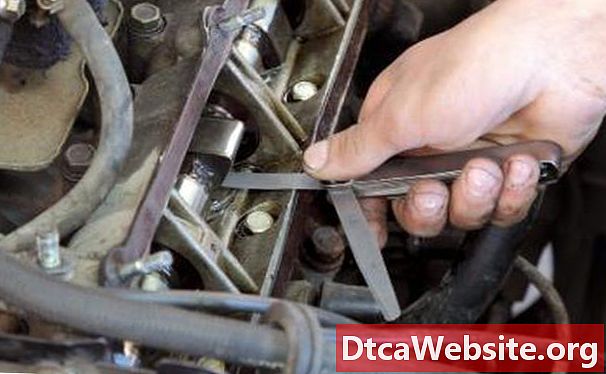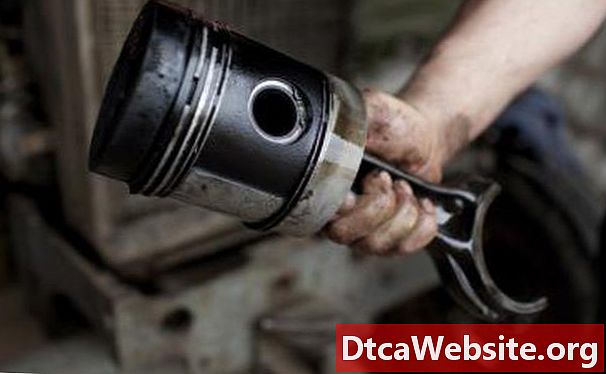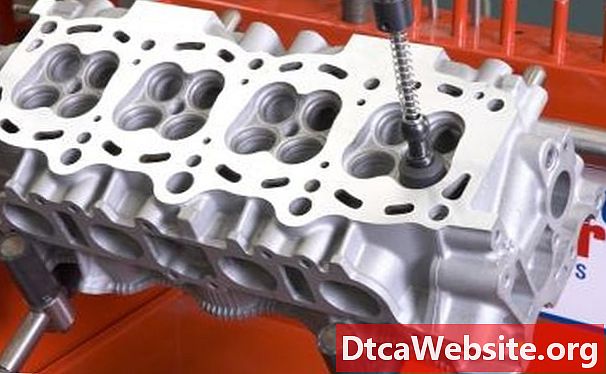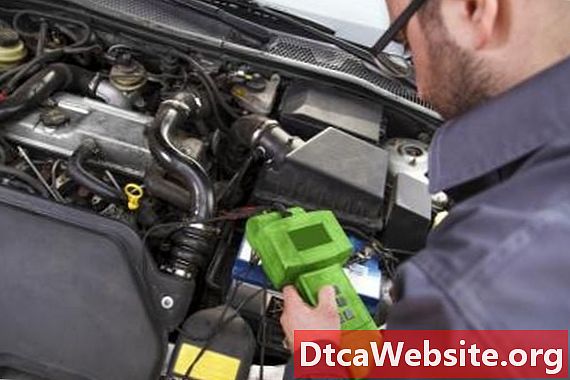
Contenu

Engine compression is measured in the cylinder, where the air/fuel mixture enters and is then ignited. The burning, expanding gases push the piston, translating that energy into forward movement. The ability to confine this explosion in the cylinder is measured and called compression. Any leak out of the cylinder is defined as compression loss, which can severely lower the power output of the engine.
Bad Valves
In a car engine, the intake and exhaust valves are typically located on top of the cylinder. The intake valve opens and lets fuel and air into the cylinder for combustion. After combustion, the exhaust valve opens to expel the exhaust gases. Bad valves are caused mainly by overheating. Overheating can heat the valves stems to the point of warping. The warped valve stems do not allow the valves to seat properly, allowing gases to leak out. This results in compression loss. The exhaust valve fails most often because it is exposed to the hot exhaust gases, which reach up to 1,200 to 1,350 degrees. The heated valve breaks or warps, causing leaks in the cylinder and compression loss. Valves can also acquire carbon buildup. Carbon buildup usually occurs on the exhaust valve due to the continuous passing of burnt gases. These burnt gases foul the valve seat, preventing a good seal on the exhaust valve. Gases then escape, which in turn causes compression loss.
Piston Holes


Pistons are housed in the cylinder. When combustion occurs, hot gases push the piston, which in turn operates a crank shaft. Piston holes lead to leakage and low compression. Overheating is one cause of piston holes. When overheating occurs, hot spots form. These hot spots eventually wear holes in the pistons. Piston leaks result in low compression because the gases do not build up in the combustion chamber. Bad spark plugs, inferior gas with low octane and defective fuel injectors can all trigger hot spots on the pistons and eventually lead to holes.
Leak in Cylinder Head
The cylinder head is located at the top of the engine block. It enables combustion by allowing fuel and air to pass into the cylinder and then escape after the mixture is burned. The cylinder head is bolted to the engine block with a gasket in between. If the gasket breaks down, a small hole develops between the cylinder head and the cylinder. This is known as head gasket failure. The leak in the gasket allows gases to escape and leads to compression loss and poor engine performance. The most common cause of head gasket failure is overheating. Extreme overheating leads to warping of the head or engine block, which then results in a breakdown of the gasket seal.



